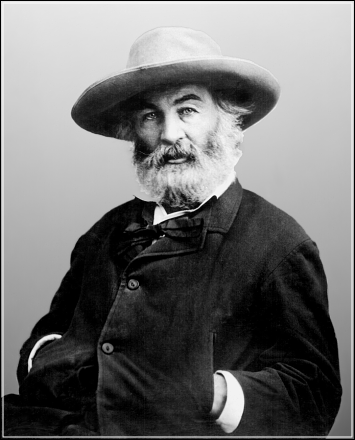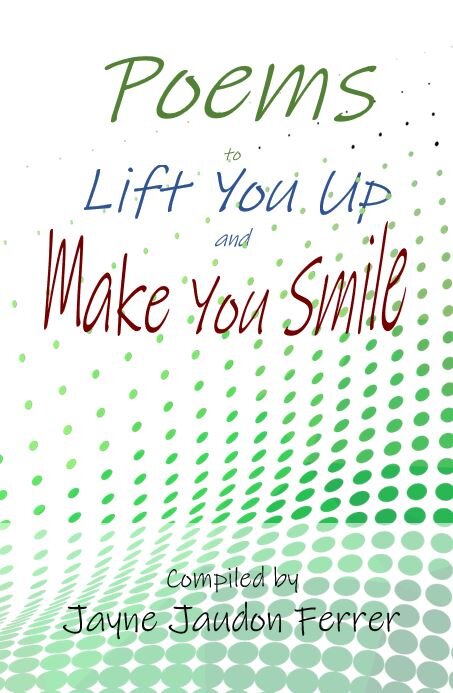| |
|
The last sunbeam
Lightly falls from the finish’d Sabbath,
On the pavement here—and there beyond, it is looking,
Down a new-made double grave.
Lo! the moon ascending!
Up from the east, the silvery round moon;
Beautiful over the house tops, ghastly phantom moon;
Immense and silent moon.
I see a sad procession,
And I hear the sound of coming full-key’d bugles;
All the channels of the city streets they’re flooding,
As with voices and with tears.
I hear the great drums pounding,
And the small drums steady whirring;
And every blow of the great convulsive drums,
Strikes me through and through.
For the son is brought with the father;
In the foremost ranks of the fierce assault they fell;
Two veterans, son and father, dropt together,
And the double grave awaits them.
Now nearer blow the bugles,
And the drums strike more convulsive;
And the day-light o’er the pavement quite has faded,
And the strong dead-march enwraps me.
In the eastern sky up-buoying,
The sorrowful vast phantom moves illumin’d;
(’Tis some mother’s large, transparent face,
In heaven brighter growing.)
O strong dead-march, you please me!
O moon immense, with your silvery face you soothe me!
O my soldiers twain! O my veterans, passing to burial!
What I have I also give you.
The moon gives you light,
And the bugles and the drums give you music;
And my heart, O my soldiers, my veterans,
My heart gives you love.
This poem is in the public domain.
|

Walt Whitman is primarily known for a collection of poems called Leaves of Grass, which he completely revised at least five times during the course of his life and which appeared in print in at least three different editions. Though his formal education ended with elementary school, Whitman was an educator at several points in his life. More often, he worked as a printer, a clerk, or a nurse; he was chronically poor, but managed to interject culture (he loved opera) and travel into his life. He achieved international acclaim during the course of his career, but probably had as many detractors as he did fans.
 Buy Now Buy Now Buy Now Buy Now Buy Now Buy Now Buy Now Buy Now
|
|
Buckner14:
Notice tht the third line of every stanza is longer than the others, then the fourth line is shorter and (except for one stanza} always ends on a sad note. Very effective technique.
Posted 05/30/2011 12:27 PM
|
dotief@comcast.net:
This poem is so rich in detail and imagery. The vivid quality of the images in the poem--moon, funeral cortege, bugles and drums--these things make the sorrowful event feel so near in time, when it is not. I suppose that is why some poems endure forever.
Posted 05/30/2011 08:10 AM
|
|
|
|








